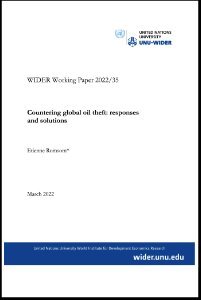By Anne T. Gallagher and Fiona David
Whether forced into relocation by fear of persecution, civil war, or humanitarian crisis, or pulled toward the prospect of better economic opportunities, more people are on the move than ever before. Opportunities for lawful entry into preferred destinations are decreasing rapidly, creating demand for a range of services that is increasingly being met by migrant smugglers: individuals or criminal groups who facilitate unauthorized entry into in another country for profit. This book, a companion volume to the award-winning The International Law of Human Trafficking, presents the first-ever comprehensive and in-depth analysis of the international law of migrant smuggling. The authors call on their direct experience of working with the United Nations to chart the development of new international laws and to link these specialist rules to other relevant areas of international law, including law of the sea, human rights law, and international refugee law. Through this analysis, the authors identify and explain the major legal obligations of States with respect to migrant smuggling, including those related to criminalization, interdiction and rescue at sea, protection, prevention, detention, and return.
Cambridge, UK: Cambridge University Press, 2014. 840p.




